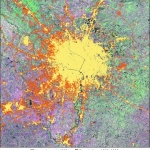Articles tagged with: William Hinton
China Left Review, Contemporary China, Ongoing Struggles, Rural China, stickyed »

As if by a rude awakening, since the dawn of the millennium China’s top officials and intellectual stars have turned from the glitz of urban development to focus once more on the fate of the peasantry. Still constituting 56-70% of Chinese and about 12-15% of the global population, China’s “rural people” (nongmin) generally belong to smallholding agrarian households precariously integrated into global capitalism through a growing reliance on the market for basic needs, underpaid production of commodities (including labor-power for transnational corporations), and developmental encroachments on their collective resources.
China Left Review »
This article was written as a foreword to the Chinese edition of Shenfan, which is the title of the second volume of the history of Long Bow Village, Shanxi Province, China. The first volume, Fanshen, told the story of the land reform that transformed the community between 1945 and 1948. Shenfan takes up the story with the organization of mutual aid leading first to lower and then to higher stage cooperation between 1948 and 1971, the year I first returned to China after a U. S. government mandated absence of seventeen years.
Chinese Revolutionary History, CSG Works »
Is socialist revolution necessary? Under what conditions? How far should it go? Is more than one revolution needed, even in the same society? What about the issue of revolutionary “excess”? Is there such a problem, and if so, what causes it and does it lead to counterrevolution? If the revolution is “defeated,” was it still worth undertaking? And finally, who gets to decide these questions, and write the history of revolutionary change? For each country or society, these queries must be broken down more specifically. In the case of China, for example, was a revolution in land control needed? Should it have been carried to the point of the collective socialist organization of rural society? Why was the Great Leap Forward undertaken, and the Cultural Revolution? Did they go “too far”? Did their “excesses” lead China back to the “capitalist road” under Deng Xiaoping?
Cultural Revolution »
We have dedicated this conference to the memory and work of William Hinton, who is also the founding mentor of one of its main sponsors, the China Study Group. Why do we look to Bill Hinton in this way? Instead of talking mainly about how Bill viewed the Cultural Revolution itself, I want to speak about what was so extraordinary in his lifework, which places him in such a special role. From that, I believe, it will be clear why it is proper for us to dedicate this conference and our work in the CSG to him. For Bill, perhaps more than any other major figure from outside of China, embodied the spirit and goals of the Cultural Revolution.
Cultural Revolution »
In The Great Reversal, Hinton doesn’t mention the 1976 coup; instead he focuses on Deng’s coup against Hua in 1978 and the subsequent dismantling of socialism. By the end of the 1980s, Hinton concluded that Liu, Deng, and other leading capitalist roaders had been the most serious threat to the Chinese revolution, not ultra-leftists such as the gang of four. Nevertheless, Hinton believed that the gang of four helped produce the “virtual stalemate” in which the Cultural Revolution ended….
